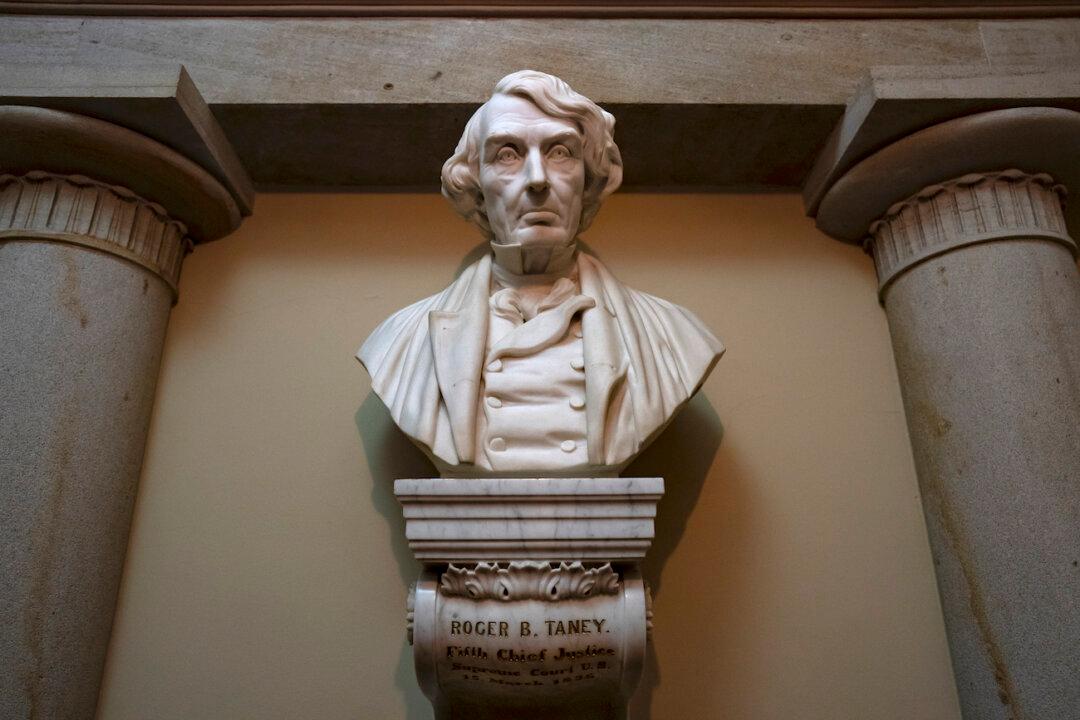President Joe Biden is expected to sign a bill ordering that a marble bust of the late Chief Justice Roger Taney, who authored a pro-slavery Supreme Court opinion that helped to precipitate the Civil War, be removed from the U.S. Capitol building.
The removal of the Taney bust is part of the push to remove Confederate statues and displays honoring historical figures deemed to be champions of white supremacy from public spaces after the May 2020 death in Minneapolis police custody of George Floyd sparked public revulsion and protests.





